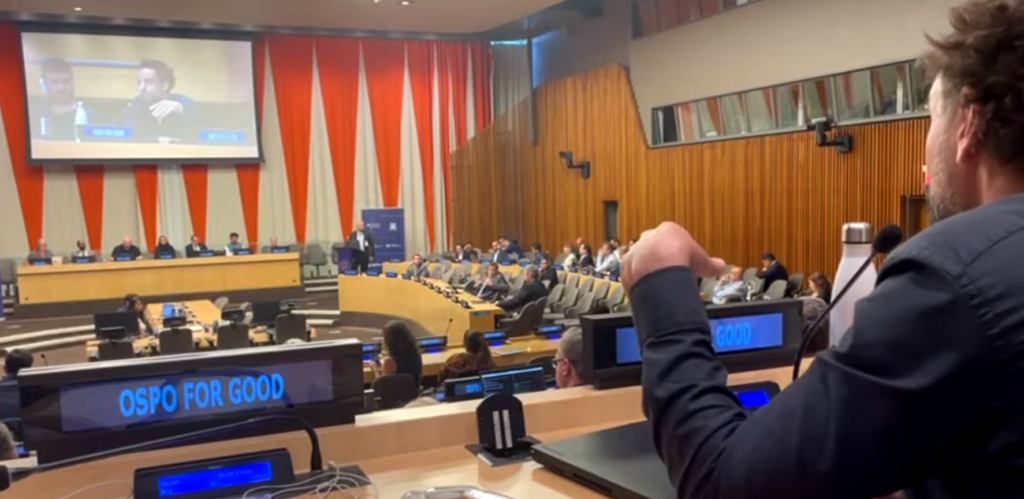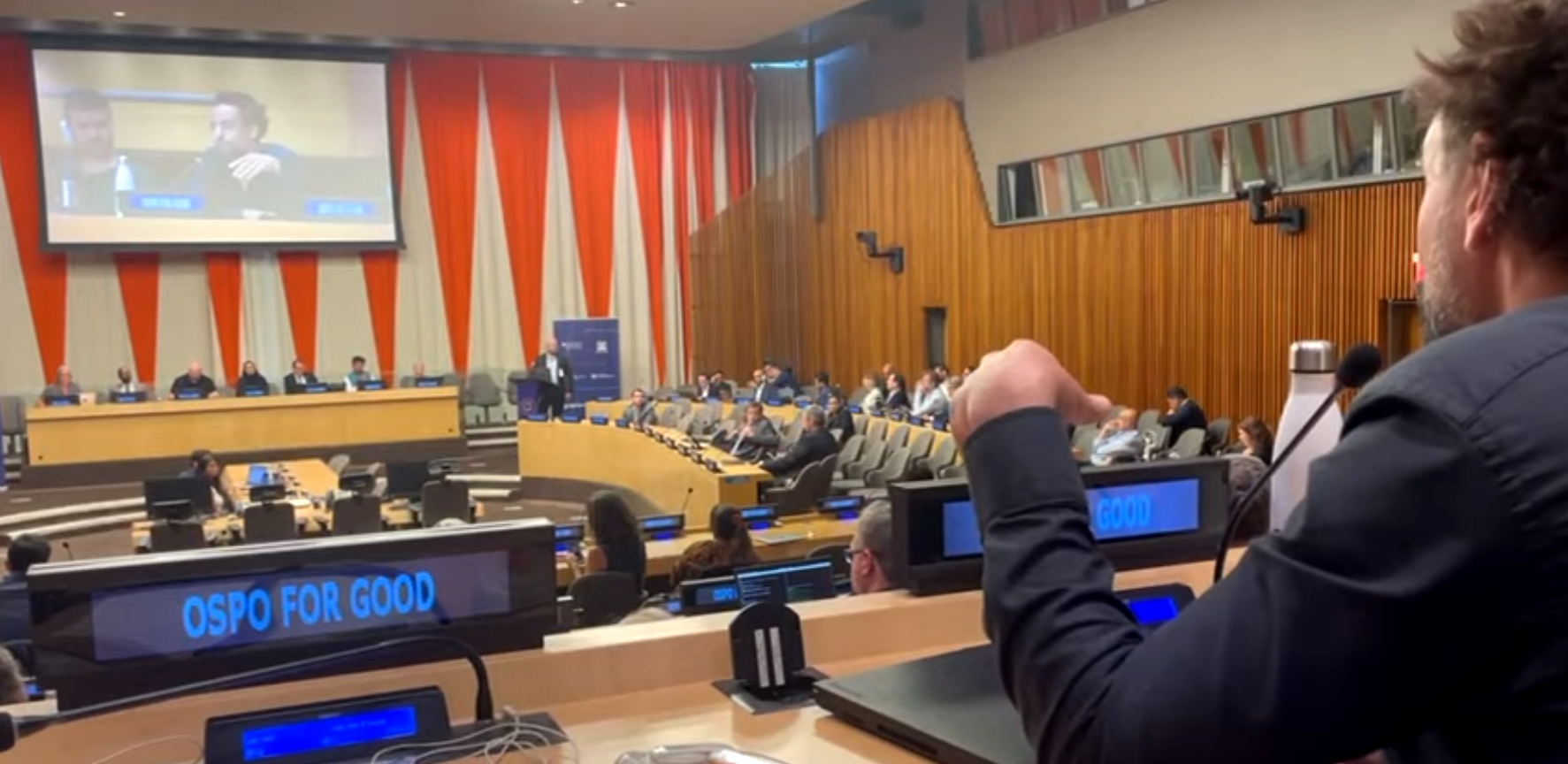GIG supported its member Felipe Fonseca to join the OSPOS for Good 2024 in New York.
This is a report from the days in The Big Apple.

I was recently in New York City, for two combined events about “open source”. Even typing these words right now makes me quite conscious of how this may sound somehow anachronistic these days. Not that (free and) open source software is not present in virtually everyone’s lives in one way or the other. In some senses, one might even say that their widespread use makes it so that open source is now taken for granted. In that sense, free-and-open technologies – operating systems, server software, programming languages, user applications, content management platforms, and even hardware – are part of the global infrastructure. On the other hand, there is something about the current vocabulary and culture around open source that feels lacking and deserves further discussion. Two insights here are perhaps simultaneously contradictory and complementary to one another:
- there is a normalisation of open source as an efficient and innovative way of developing technologies;
- there is a sort of watering down of – or giving up altogether on – the more overtly revolutionary potential of open source.
In this post, I won’t try to solve that apparent paradox. It will be addressed in more depth in another series of texts I’m working on and intend to publish soon that recount a bit of my engagement with the topic for over two decades. For now, suffice to say that I can see it, and will come back later.
OSPO
Now back to the two events in New York. They were organised around the concept of “OSPO”, an acronym that to be honest I hadn’t paid attention to until being invited, some months ago. OSPO means “open source program offices”. In a very brief description, they are departments specialised in promoting a transition towards open source. They focus chiefly on software, but may potentially expand to other topics, as I’ll explore below. The events were particularly focused on promoting the implementation of OSPOs in government and international agencies, and some examples were described of OSPOs in corporations and universities.
The first event I attended, “OSPOS For Good”, happened at the United Nations Headquarters. Germany and Kenya were its host countries. The second one, organised by the Linux Foundation, was called “What’s Next for Open Source?”, and happened at the Microsoft Office in Times Square. The conversations followed the Chatham House Rule, which allows participants to later share the topics and contents discussed, but forbids attribution of individual authorship. For this reason, I’ll focus this text more on my personal impressions and observations and won’t quote any speaker.
Read more on Felipe’s blog page.


